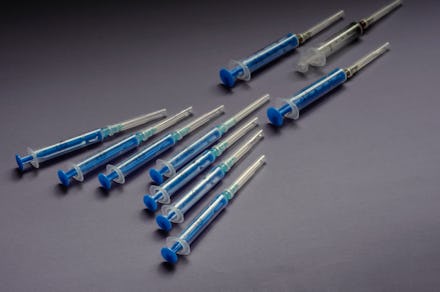Doctors ask states to donate lethal injection drugs, which can help treat coronavirus

The ongoing pandemic is not only causing hospitals to run low on equipment, but they're running out of vital medication, too. Now, doctors are asking states to give up their lethal injection drugs for coronavirus treatments. These drugs, doctors say, could help hundreds of people.
On Thursday, a group of physicians and medical experts addressed an open letter, obtained by The Marshall Project's Keri Blakinger, to directors of state prisons. In it, doctors wrote that many of the medications used in lethal injections are "desperately needed to treat patients suffering from [the coronavirus]."
Currently, 28 states allow the death penalty (Colorado outlawed it last month), and when it comes to lethal injections, each state has its own mix. The Death Penalty Information Center compiled a chart of lethal injection protocols by state. The doctors pointed out that four drugs featured in many states' protocols — midazolam, vecuronium bromide, rocuronium bromide, and fentanyl — are "currently listed on shortage by the American Society of Health-System Pharmacists."
"These medicines were never made or developed to cause death — to the contrary, many were formulated to connect patients to life-saving ventilators and lessen the discomfort of incubation," the doctors argued.
Before the coronavirus outbreak exploded in the U.S., the Food and Drug Administration reported shortages of over 100 drugs in the country. The pandemic has only served to further drain supplies with The New York Times reporting that the most common shortages include drugs used to keep airways open, antibiotics, antivirals, and sedatives.
"Just like we're seeing shortages of other materials, like masks and ventilators, medications are right there in the mix of things that we don't always have enough of on hand," Erin Fox, a drug shortage expert at the University of Utah, told The New York Times. "So we were not prepared for this kind of surge."
Without proper medication, treatment for the coronavirus — specifically, the use of ventilators — can be "agonizing," Esther Choo, an associate professor of emergency medicine at Oregon Health & Science University, told Vox.
Right now, most states aren't carrying out executions, so the drugs really are just sitting there. On April 1, Texas, which executed far more inmates than any other state in 2018, issued its third stay of execution since the coronavirus outbreak began.